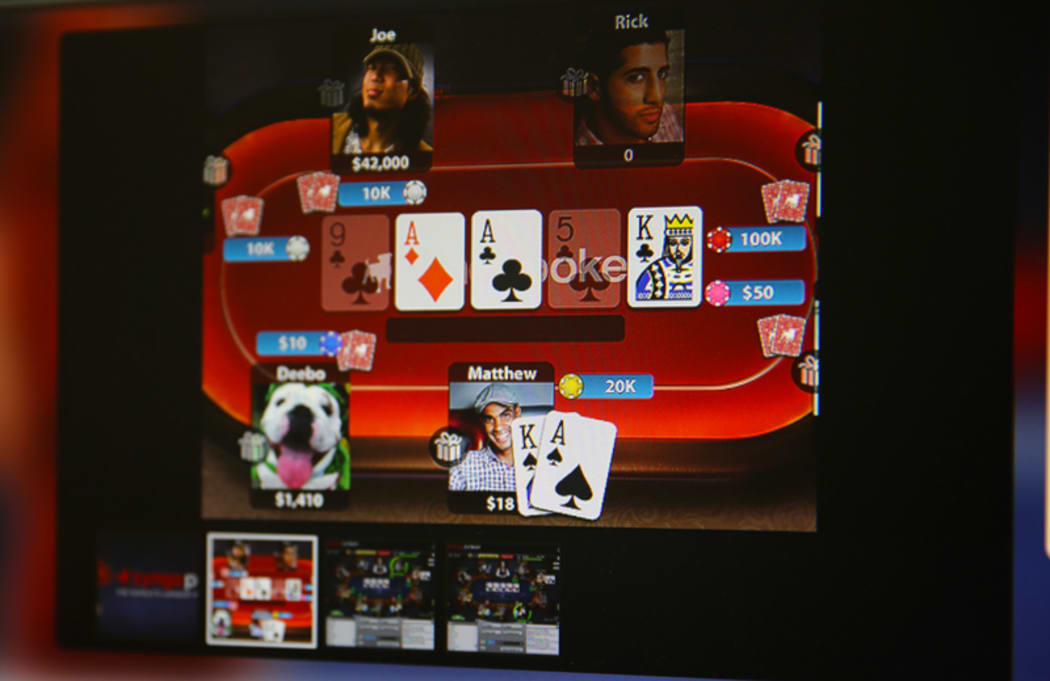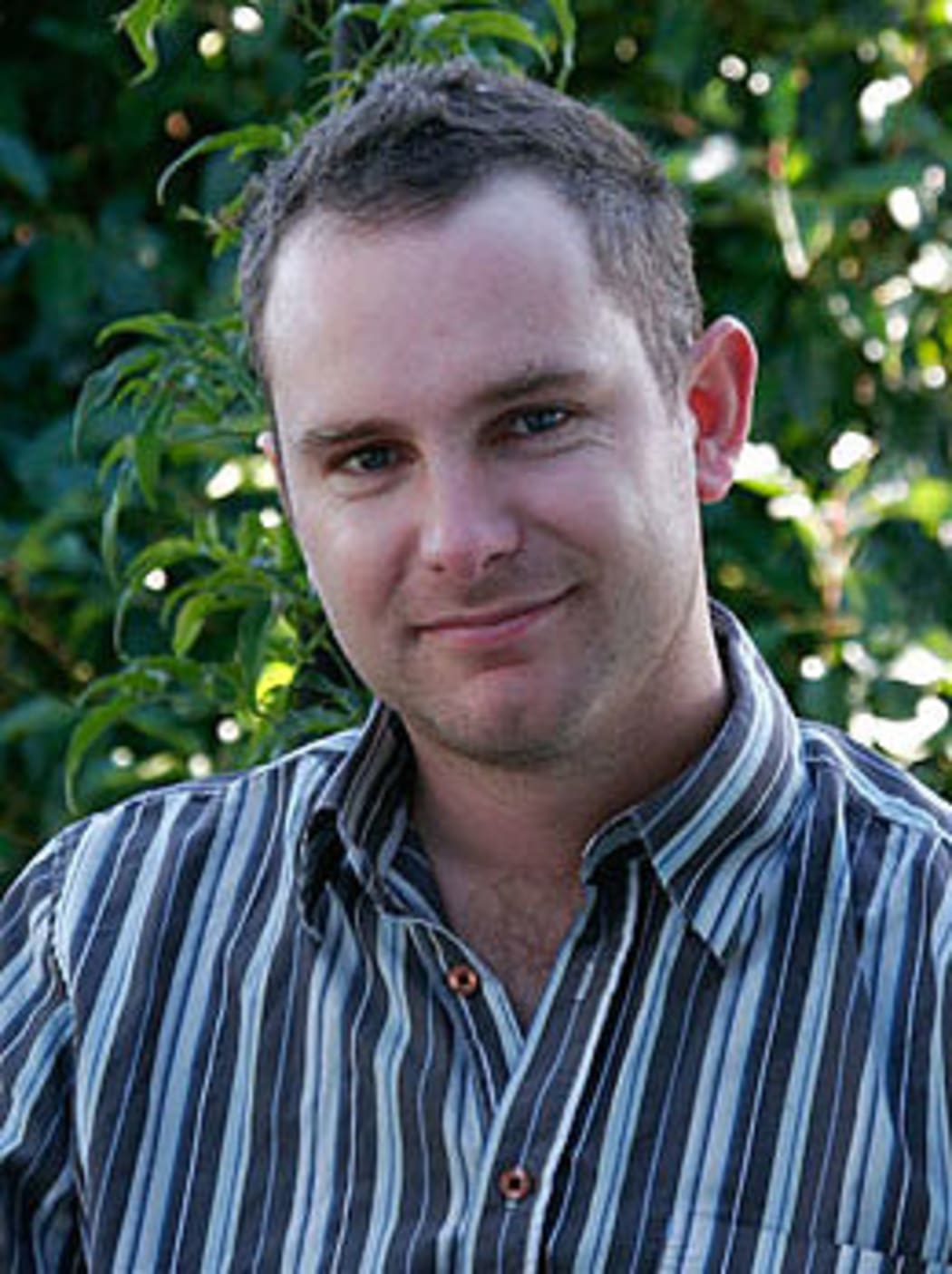Before he became an addiction specialist, James Driver walked the web as Benway Monochrome – a high-ranking bard in a top guild in the online game Everquest. “I had an epic weapon and I killed a whole lot of internet dragons,” Driver, 31, told a small crowd at the 2014 International Gambling Conference in Auckland.

Online Poker Photo: The Wireless
“By the time I finished playing, I'd played for over 2000 hours just on that character and a whole lot more on many others. At the worst point, I was playing around 16 hours a day and that lasted for at least a couple of years. I eventually sold my character on eBay for US$300.”
He's worked that out to about 15 cents an hour, not including the cost of failing at university courses and buying plenty of takeout.

James Driver Photo: Supplied
This was over a decade ago. Today, Driver is a psychotherapist, the founder of Net Addiction NZ and one of the country's leading experts in online gaming addiction.
One of the things on his mind at the moment is the blurring line between online gaming and gambling, a trend documented by some academics and game economists in the UK and US.
It's not a crazy thought, not to anyone familiar with the sweet rush of Candy Crush. It's a dazzlingly simple free-to-play game for smartphones and Facebook – yet brought in the bulk of parent company King's $1.88 billion in revenue in 2013. About 96 million people play it each day.
The secret is the way Candy Crush – and peers including Clash of Clans (created by Supercell), Farmville (Zynga) and Slotomania (Playtika) – make players pay. Instead of selling games as goods, or even as a subscription service, most of the top-grossing mobile games now run what's known as “freemium” models.
Players start out for free but are quickly offered in-app purchases, ranging from a souped-up weapon or extra lives to a fancy hat for a character to wear. Often, and usually once the player's been at it long enough to get hooked, it becomes difficult to progress without paying.
Not everyone is willing to pay. According to King, about 70 per cent of the players that complete Candy Crush don't make a currency payment. But some of those that do pay, spend big.
The best games, Driver says, manage to make the transition from “skill game” to “money game” quite subtle. “Players feel like, I should be able to get past this point if I was just a bit better, but it's only $2, not a big deal, I'll just pay and I can get going again.”
Other tricks include using intermediate currency such as gold coins or gems, which makes it harder for players to keep track of what they're spending, and randomised rewards (non-monetary gambling). In Puzzle & Dragons, for example, a player doesn't pay for a stronger hero – they pay for the chance to get it. “It actually even looks like a slot machine – well, kind of, it's a dragon - with a little handle that you pull,” Driver says. “You put your money in, a little egg pops out, flashing lights and sounds and all that, and you get some kind of hero. More often than not it's something crappy that's not going to help you that much. So you want to try again.”
It's this kind of convergence – and the rise of online casino games such as Zynga Texas HoldEm Poker and Slotomania – that's got some gambling experts in New Zealand worried.
Dr Sean Sullivan is a director at ABACUS Counselling, Training and Supervision in Auckland, which – among other services – trains problem gambling counsellors around New Zealand.
“When it comes down to it, there's a lot of crossover between gaming and gambling,” Dr Sullivan says. “People buying tokens and participating and eventually paying more and more for their tokens, which you'd be doing at a casino, but online it's just seen as playing a game.”
Players feel like, I should be able to get past this point if I was just a bit better, but it's only $2, not a big deal, I'll just pay and I can get going again.
In Zynga's popular Facebook poker app, for example, it's possible to play for as long as you like without spending a cent – but players can also buy chips, from $0.12 for 51,250 chips through to $148.08 for chips worth $410 million inside the game, even though there's no real money pay-out.
There's a risk online casino games set players up for the real deal, Dr Sullivan says. “People will see themselves having some skills associated with it and then try and transfer those skills to other forms of pure gambling.”
In New Zealand, the legal age for gambling in a casino is 20. To buy an Instant Kiwi ticket, play the pokies or make a bet at the TAB, the legal age limit is 18. It's illegal to offer online gambling (real money payouts, as opposed to casino-style games) in New Zealand, with the exception of the Lotteries Commission and the Racing Board for some approved products.
There's also a ban on advertising overseas gambling here – but New Zealanders are free to gamble on offshore websites. A number of websites offer local players reviews and recommendations.
How much of a problem is online gambling compared to other types in New Zealand? Narelle Nichelsen and Leanne White work face-to-face with clients for the Problem Gambling Foundation, in Auckland and Christchurch respectively. While the foundation is taking legal action over its lost contract with the Ministry of Health, for now it's still the largest national organisation of its kind.

Leane White Photo: Supplied
Both Nichelsen and White say clients' main mode of gambling still tends to be real-life pokies. That's backed up by official data. According to the Department of Internal Affairs, about one in five of people who regularly play gaming machines are likely to fit the definition of problem gambling, which makes it the type most commonly associated with problems in New Zealand.
There's less data available for internet gambling but Nichelsen says she is noticing it's common for clients to have an online habit as well. “We've only been collecting info and asking about online gambling for the last few years,” she says, which makes it difficult to comment on it as a trend.
Overall, the problem gambling rate at any given time in New Zealand is estimated at between 0.3 per cent and 1.8 per cent of the adult population, which works out to between 10,000 and 60,000 people – though that's likely to be conservative, as it doesn't include people in prison or those at “moderate risk” who may also be experiencing problems.
The number of people with internet gambling as a main problem appears to be small. From 1022 new callers to the National Gambling Helpline in 2013 (on their own behalf – not including those who called up for a friend or family member), just 14 had a main problem with online gambling, with four struggling with online gaming machines and six with online table/card games.
Dr Sullivan – who sees about five private clients a week – says he's actually seeing more problems among young people with online gaming – and sometimes pornography – than online gambling.
“Gaming is a much bigger problem,” he says. “We're just starting to get the influx of the number of young people that have a problem in that field.”
One of his clients has a son who spends days in his room; another has a teenager who is “lost in his gaming”, takes time off school and is also starting to steal money. “That's gaming, they won't necessarily see it as gambling, but he needs money to keep his gaming going.”
That's not necessarily casino-style games – it could be something like Dota 2 or World of Warcraft, he adds.
Obviously, it's possible to play these games without problems. “The idea of an addiction is that it's causing problems,” Dr Sullivan says – and when that does happen, it often points to an underlying problem such as depression or anxiety. “It's often as a way to self-medicate.”
He is concerned that young people are particularly vulnerable to the addictive nature of online games, and that some online gambling companies are advertising without making enough effort to warn young people of the risks involved.
Driver, who still enjoys playing games himself, says he's got another gripe with freemium games. “If this proves to be the most effective way to make money, there's not going to be much interest in making quality games anymore,” he says. “It'll just be a matter of finding that percentage of people that get hooked.”
If you need to talk to someone about your own gambling or gaming , try these helplines.
National Gambling Helpline: Call 0800 654 655 (24/7) or text 8006
Problem Gambling Foundation: 0800 66 42 62 (main number) 0800 862 342 (Asian Family Services)
Auckland 09 638 0801
Hamilton 07 839 6871
Tauranga 07 578 9329
Wellington 04 389 6566
Christchurch 03 365 9659
Dunedin 03 477 9852
This content was brought to you with funding from New Zealand On Air.


